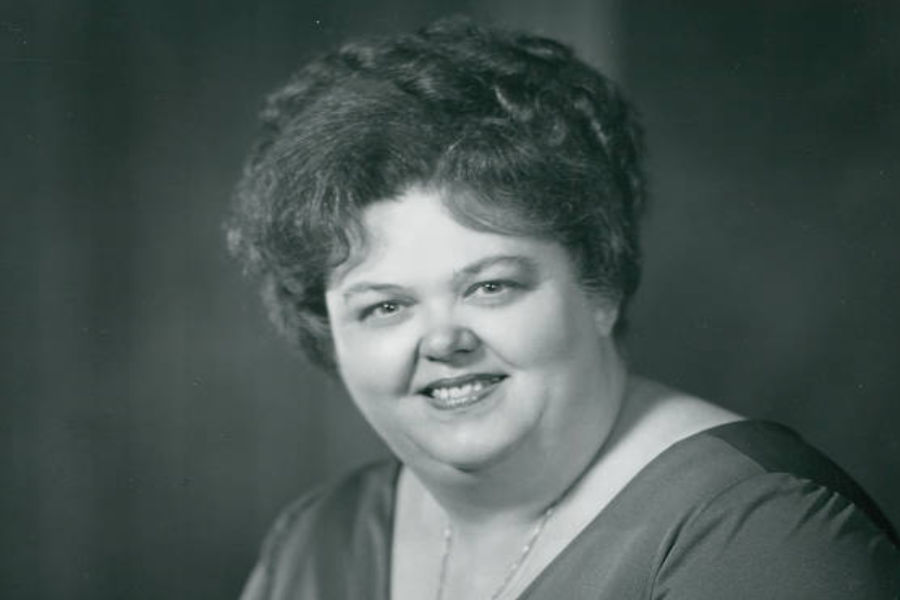Table of Contents
Greta Alexander: The Life and Legacy of a Controversial Psychic
Greta Alexander, a well-known psychic from Delavan, Illinois, gained national and international attention for her claimed abilities to assist law enforcement in solving missing persons and murder cases. With a career spanning decades, Alexander became a beloved figure to many who believed in her psychic talents. She worked on high-profile cases across the United States, offering her psychic insights to police departments, media outlets, and the general public. Despite her popularity, her work was often met with skepticism and controversy, particularly regarding the accuracy of her predictions.
Early Life and the Lightning Strike That Changed Everything
Born into a farming family in Manito, Illinois, Greta Alexander’s early years were humble. She worked as a chicken plucker, earning 25 cents per bird, long before discovering the psychic abilities that would later define her life. According to Alexander, her psychic powers were significantly heightened in 1961 when she was struck by lightning while resting at home, pregnant with her fifth child. The lightning strike, as she described, left her wrapped in Venetian blinds and set fire to her bed, but neither she nor her unborn child was harmed. After this near-death experience, Alexander began to sense when certain events would occur, marking the beginning of her journey into the world of psychic phenomena.
Soon after, she started noticing that she could anticipate phone calls before they rang and receive psychic “impressions” of distant events or people. These abilities eventually led her to perform psychic readings and, later, to assist law enforcement in solving difficult criminal cases.
Rising to Fame: Psychic Detective Work
Greta Alexander’s reputation as a psychic detective began in 1974 when she was called to assist with the investigation of a murder case involving a woman from Washington, D.C. This success paved the way for her to work with police departments across the United States. One of her most famous cases was her involvement in the disappearance of Mary Cousett in 1983, a young mother from Alton, Illinois. Cousett had gone missing, and despite police efforts, her body remained undiscovered for months. Authorities reached out to Alexander for help, and she provided 22 clues that eventually led them to Cousett’s skeletal remains.
Alexander’s clues, which included specific details about the body being found near an embankment, a bridge, and in proximity to a church, were eerily accurate. She also predicted that the body would be found by a man with a “bad hand” and mentioned the importance of the initial “S.” In this case, the body was discovered by Steve Trew, a local auxiliary policeman who had a previously injured hand, adding credibility to her claims. While skeptics pointed out that some of her predictions were either vague or coincidental, the media hailed her involvement as a triumph of psychic ability.
Skepticism and Criticism
Despite her successes, Greta Alexander’s career was not without controversy. Critics, including parapsychologists and journalists, often questioned the accuracy of her predictions and the methods by which she received information. Some argued that her predictions were often so broad that they could apply to any number of situations or be retrofitted to match the eventual outcome. For instance, in the Cousett case, while many of Alexander’s clues were touted as accurate, others were dismissed as irrelevant or coincidental.
The role of the media in promoting her psychic achievements was also scrutinized. Reporters who covered Alexander often focused on her successes while ignoring or downplaying her failures. Ward Lucas, a TV news reporter who passed away recently, once commented that stories about psychics solving crimes have a certain “deviancy factor” that attracts headlines, even when the facts suggest otherwise. This tendency to sensationalize psychic work left many to wonder whether Alexander’s success was as much a product of media hype as it was of any genuine psychic ability.

Notable Cases and Contributions
Throughout her career, Alexander worked on numerous high-profile cases, including the disappearance of millionaire Elmo Batterton and his wife in 1983, and the 1993 death of Tommy Jimmison, a newspaper deliveryman in Iroquois County, Illinois. While her assistance was not always conclusive, her involvement in cases often made headlines, further solidifying her place as one of the most well-known psychics in the country.
Alexander was also a beloved guest on radio shows, particularly WJBC’s Problems and Solutions, where her popularity was undeniable. During one appearance, the station reportedly had to turn away over 11,000 callers hoping to speak with her.
A Philanthropic Heart
Later in life, Greta Alexander used her celebrity and fortune to give back to her community. She opened the House of Hope, a low-cost hotel that charged only $3 per night to provide shelter for families of hospitalized patients in Peoria. The House of Hope was funded through Alexander’s psychic readings and other charitable efforts. She also founded the Star of Hope Center, a nonprofit organization named in memory of her first husband, Ed, who died of cancer in 1976.
A Controversial Legacy
Greta Alexander passed away on July 17, 1998, at the age of 66, after a lengthy battle with liver cancer. While she was adored by many for her charitable spirit and psychic work, she remained a divisive figure. To her supporters, Alexander was a woman with a rare gift who used her abilities to help others. To her critics, she was a product of media sensationalism, her so-called successes built on coincidences and vague predictions.
Her legacy continues to be debated, but what remains undeniable is the impact she had on those who believed in her, as well as her generosity toward those in need.
Have you seen our other Psychic Medium profiles?




